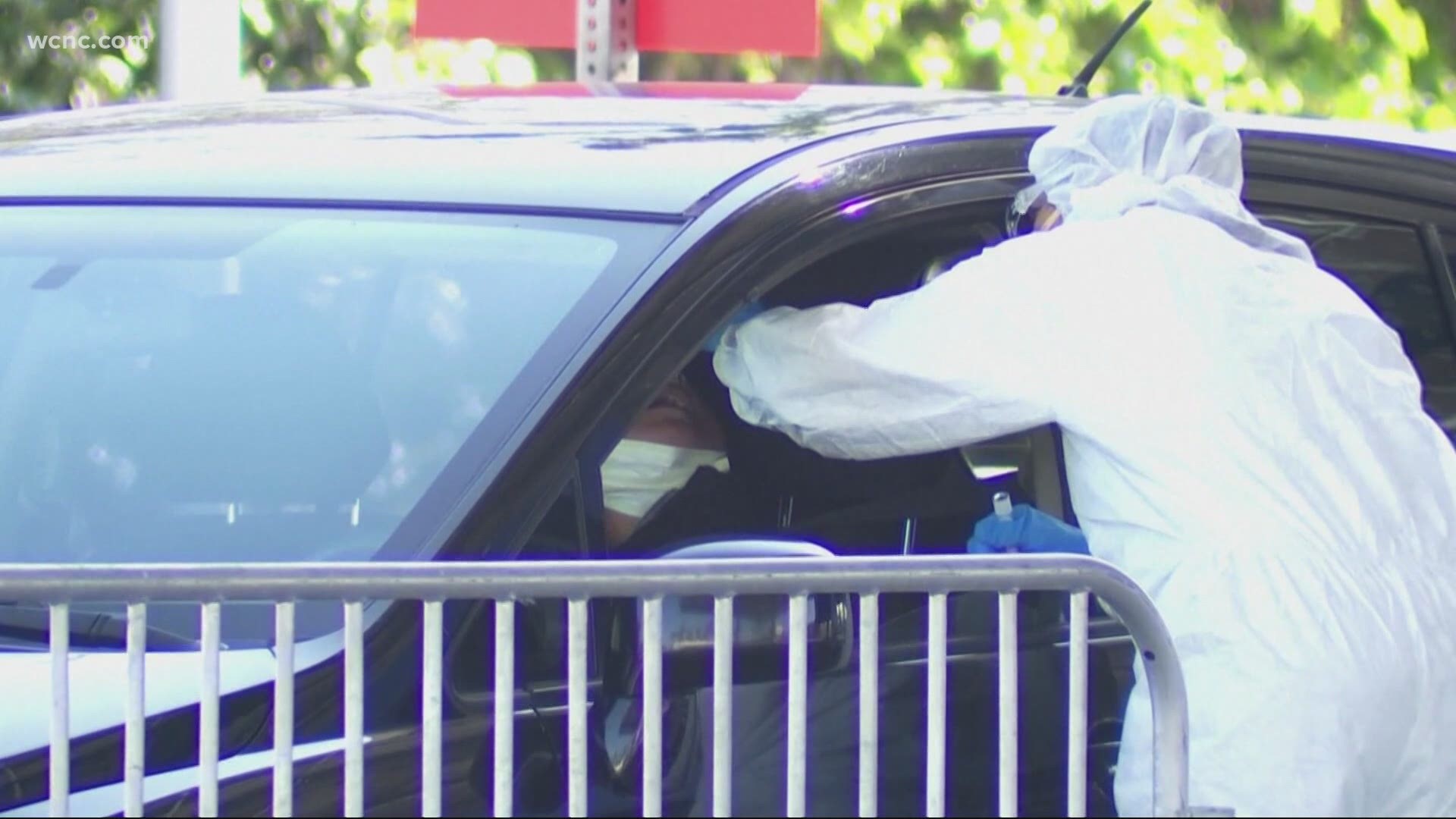RALEIGH, N.C. — Wednesday marked one year since we learned of the first COVID-19 case in North Carolina.
The pandemic has impacted everything from work to social life, and so much in between. The mental strain of coronavirus has also been impacting people physically and emotionally.
A year ago, people were getting sick with a mysterious virus that would change life as we know it. Infections began to rise, schools close, stay at home orders put in place.
"Staying home will save lives," North Carolina Department of Health and Human Services Secretary Dr. Mandy Cohen said in March of last year.
Then unemployment skyrocketed, businesses struggled, and thousands of people died.
"We have tremendous grief in this country," Robin Gurwitch, a Duke University professor in psychiatry and behavioral sciences, said.
All these factors have taken a toll on our mental health.
Seeking Treatment
"Everyone is feeling a lot worse," Duke professor in policy Anna Gassman-Pines said.
That has led many to seek some form of treatment. For the past 40 years, Dr. Myra Preston has practiced brain imagery and Neurotherapy. As a result of the pandemic, she said she's seen her business greatly increase.
"The remnants of the virus and the havoc is still being wrecked on the central nervous system which is the brain," Dr. Preston of Siber Imaging said.
Through Neurotherapy, there's a method to help rewire the brain through continuous treatments that have proven successful for patients like Ashley Nickelson. She contracted the virus back in June and continued to suffer symptoms both psychically and mentally several months later.
“I had no energy, I felt very exhausted," Nickelson said. "Now I feel so thankful to wake up every morning and feel well. It was a long fight to get to this point.”
Neurotherapy can also be helpful for children as well as treating ADHD or stress and anxiety from the pandemic too.
Have a relative or friend in another state and want to know when they can get vaccinated? Visit NBC News' Plan Your Vaccine site to find out about each state's vaccine rollout plan.
'You have to have hope'
But for some, the mental and emotional struggles continue to weigh heavy on them, causing an increase in substance abuse.
"There is a crisis coming and it’s here," clinical psychologist Jennifer Plumb Vilardaga said.
These experts offered advice as we start to see a light at the end of the tunnel with the vaccine rollout.
They say to set a good routine, take care of yourself, and don't be afraid to get help through resources like telehealth.
"You have to have hope, I have long been amazed by the resilience of the human spirit," Plumb Vilardaga said. "While there is a lot stacked against us, there is resilience."
You are not alone. If you need help, there are resources. You can reach the National Suicide Prevention Lifeline at 800-273-8255 or NAMI Charlotte's Lifeline at 800-273-TALK or 800-SUICIDE.

